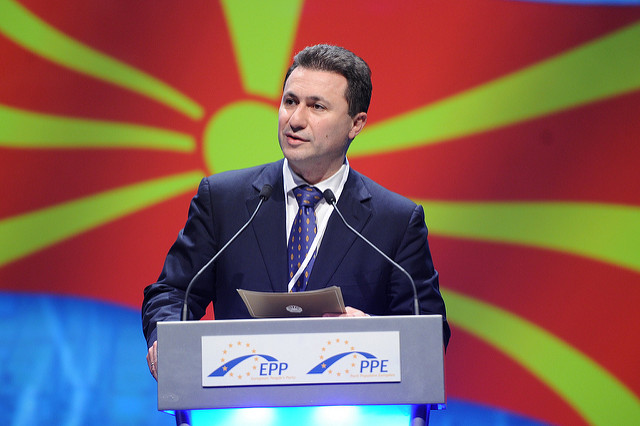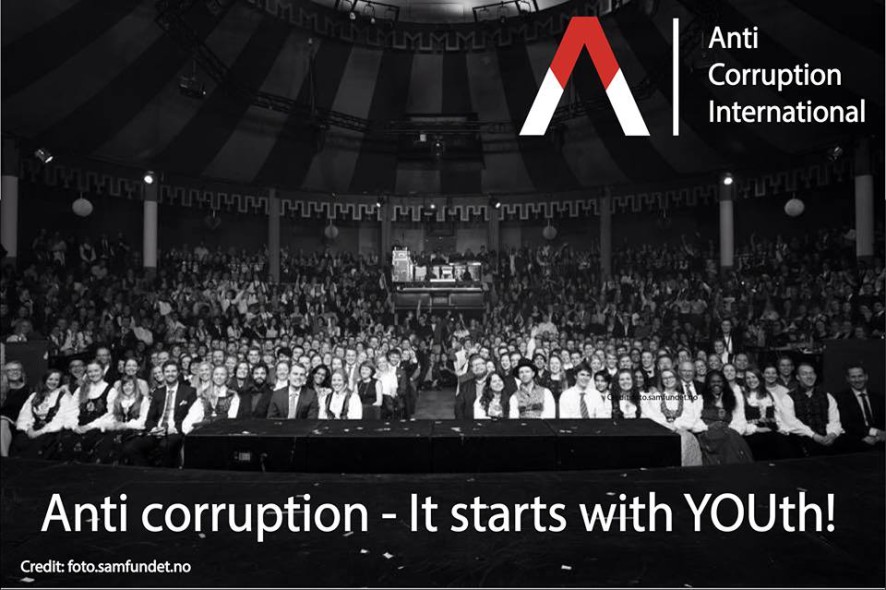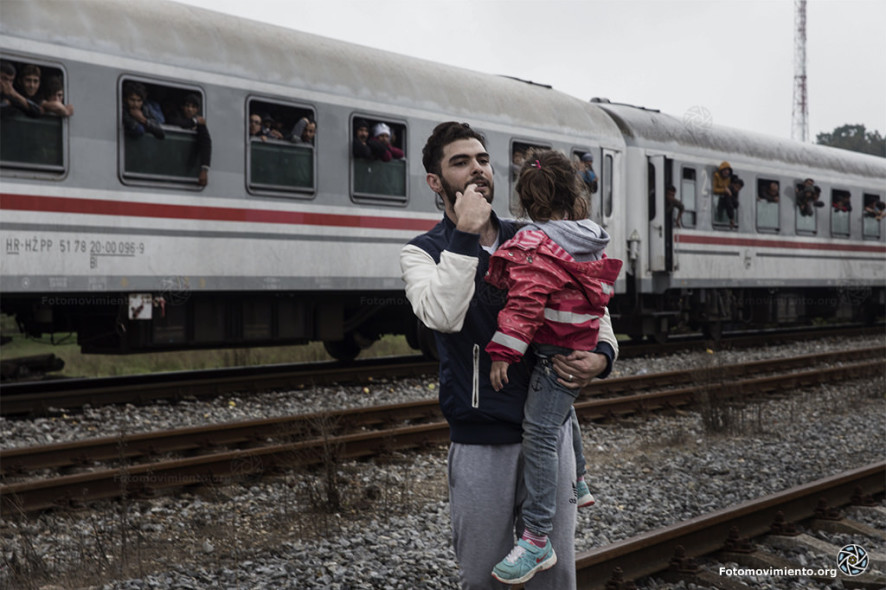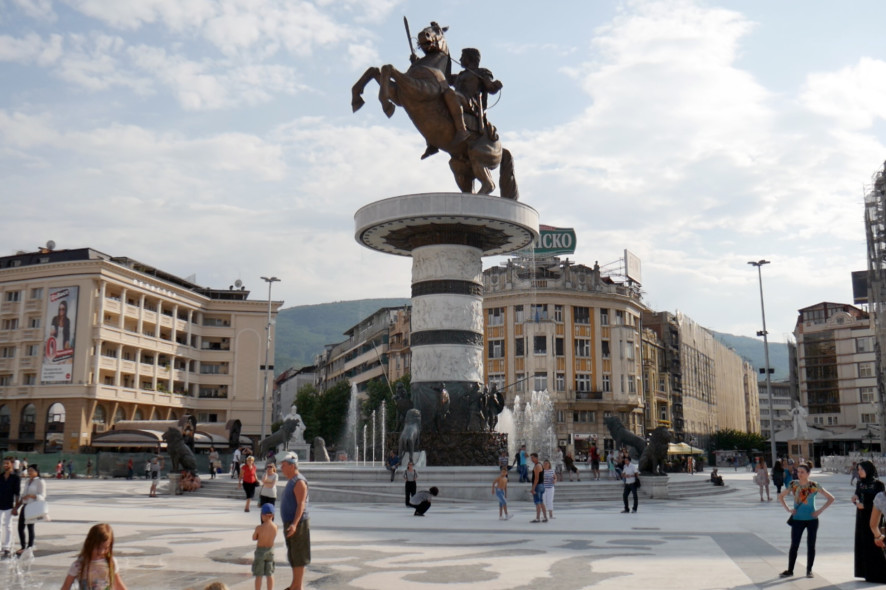by Ivan Šuklev
Macedonia is a country that is momentarily riddled with difficulties. Beginning with the enormous waves of refugees, that are trapped and extremely dissatisfied because of their status-quo between the borders of Macedonia and Greece, then of course there is the famous name dispute with Greece, a conflict that has been around for over 20 years now (resulting also in the blocking of Macedonia’s EU integration by Greece), and last but not least, massive demonstrations and protests in the bigger cities as a result of the abolition that President Ivanov signed on the 12th of April 2016. Large problems for a petite country with 2 million inhabitants. But the latter of them may prove to be the biggest obstacle that this country may have to overcome in order to prove its EU aspirations.
BUGGED CONVERSATIONS UNRAVEL MASSIVE CORRUPTION
It all started roughly about one year ago, when the opposition’s biggest party (SDSM) leader, Zoran Zaev publicly announced that he possesses transcripts from bugged telephone conversations of 20,000 people involved in Macedonian politics, many of which were conversations between people of the highest order from the ruling party, VMRO-DPMNE. The ‘bombs’, as Zaev called them, unravelled massive levels of corruption and crime, rigged elections, conspiracy to cover murder and other despicable acts committed by the leading people of the Macedonian government. The wiretapped transcripts incriminated Prime Minister Nikola Gruevski and his closest collaborators of atrocities so far unseen in Macedonian history, including but not limited to corruption in the judicial system (political prisoners, judicial bribery), election fraud (the opposition leader claims that the ruling party stole up to 150,000 votes in the last parliamentary elections), threats and arrests carried out against journalists and politicians critical of the ruling party, a public administration under the direct control of the ruling party.. The list goes on and on and if we got into details about every criminal behavior of the ruling party in the past 10 years, we could surely write half a dozen of books. The crimes were committed by a group of people very close to Prime Minister Nikola Gruevski, in some cases blood-relatives that are part of his government.
AFTERMATH OF THE WIRETAPS: PROTESTS ON THE STREETS, PRZINO AGREEMENT
The people led by the opposition party’s leader Zaev took it to the streets to show their disapproval of the ruling party. Massive protests and demonstrations were held in the capital city of Skopje, visited by no less than 100,000 people. Although at first the ruling party rejected all claims from the opposition party (new elections with a clarified voters list, resignations from all culprits from the wiretaps, investigations about the crimes committed by the Prime Minister and his closest people), the EU got involved and sent European Commissioner Johannes Hahn to help Macedonia out of the crisis. Hahn’s appointment for this crisis was met with scepticism at first by the opposition party, because Hahn used to be a member of the board of directors of the gambling company Novomatic, a company that has its own casino in Macedonia called Flamingo. This casino was built during the term of office of the ruling party VMRO-DPMNE and withstood allegations that it only employs voters of the ruling party. But Hahn was adamant that something had to be done in order for the crisis to be overcome and so the Przino agreement took place. The main points of the Przino agreement were new elections fulfilling all European criteria, resignations from the culprits of the wiretaps, the clarification of the voters list so that phantom-voters can be eliminated from it and the creation of a Special Public Prosecution, tasked with investigating the wiretapped conversations.
PRZINO AGREEMENT BURIED
After the implementation of the Przino agreement had begun, many observers found it difficult for the measures to take place in a short period of time. Difficulties in the clarification of the voters list resulted in several postponements of the elections. The ruling party ignored these difficulties and declared the new elections to take place on the 5th of June, a decision that forced the opposition to declare a boycott of the elections. But, the biggest turn-around was yet to take place. On the 12th of April, President Gjorgje Ivanov gave a press conference in which he signed an abolition involving the wiretaps, pardoning 56 people involved in the wiretaps, including Prime Minister Gruevski, his cousin and ex-chief of the national security service Saso Mijalkov, ex ministers Gordana Jankulovska and Mile Janakieski and so on. With this move the president effectively destroyed the work carried out by the Special Public Prosecution.
On the list of pardoned people was also the opposition leader Zoran Zaev, who was being charged with creating a ‘serious internal crisis in Macedonia’ by the ruling party. The opposition party leader denounced his own pardon, stating that everyone involved in the wiretaps who felt innocent should do so. After this announcement, Prime Minister Nikola Gruevski denounced his pardon as well. The President’s move made many experts question his abolition, stating that it directly breaks the authorization given to him by the Constitution of Macedonia. They also warned of the consequences of this move, especially because with this abolition, the Przino agreement governed by the EU was effectively buried.
COLORED REVOLUTION
Many people protested and demonstrated against this scandalous act by the President, who even today has not removed the abolition act. After the abolition, every day protests and demonstrations take place in the bigger cities in Macedonia. The protests have taken place under the banner of #Protestiram, and are directly aimed against the ruling party VMRO-DPMNE (president Ivanov is also a member of the party). Many acts have been committed by the protesters, such as the coloring of the Government building in many different colors and the coloring of many statues and monuments built by the ruling party in the past 10 years, an investment worth more than 500 million euros, an investment that has been ridiculed by foreigners and frowned upon by people not belonging to the ruling party since this investment has indebted the country to its European creditors for more than a billion euros. This is why for the last couple of days the revolution got a new name: A colored revolution, taking place every day at 6 p.m. with public announcements made by the protesters on twitter under the hashtag #Protestiram.
WHAT NOW?
What will happen in Macedonia remains a mystery. The country finds itself in a position that has not been shared by any other country in Europe, ever. The massive allegations against the leading party have brought the people to the streets, and they demand justice for the crimes, justice and trials that won’t be carried out unless the shameful abolition act is removed by President Ivanov. Rumour has it that EU politicians have been outraged by the abolition act and are seriously contemplating a package of sanctions against the country and its politicians, mainly the politicians from VMRO-DPMNE, sanctions such as the prohibition of travelling to EU countries or seizure of properties that they possess in the EU.
It is fair to say that the country is on a crossroad. One road leads to democracy, EU integration, justice for the criminals. The other road seemingly leads to the abyss, to international isolation, to the demolition of the law and the very last fractions of democracy that remain in the country. Let’s just hope that the people will make the right choice.
Image by European People’s Party, taken from flickr







